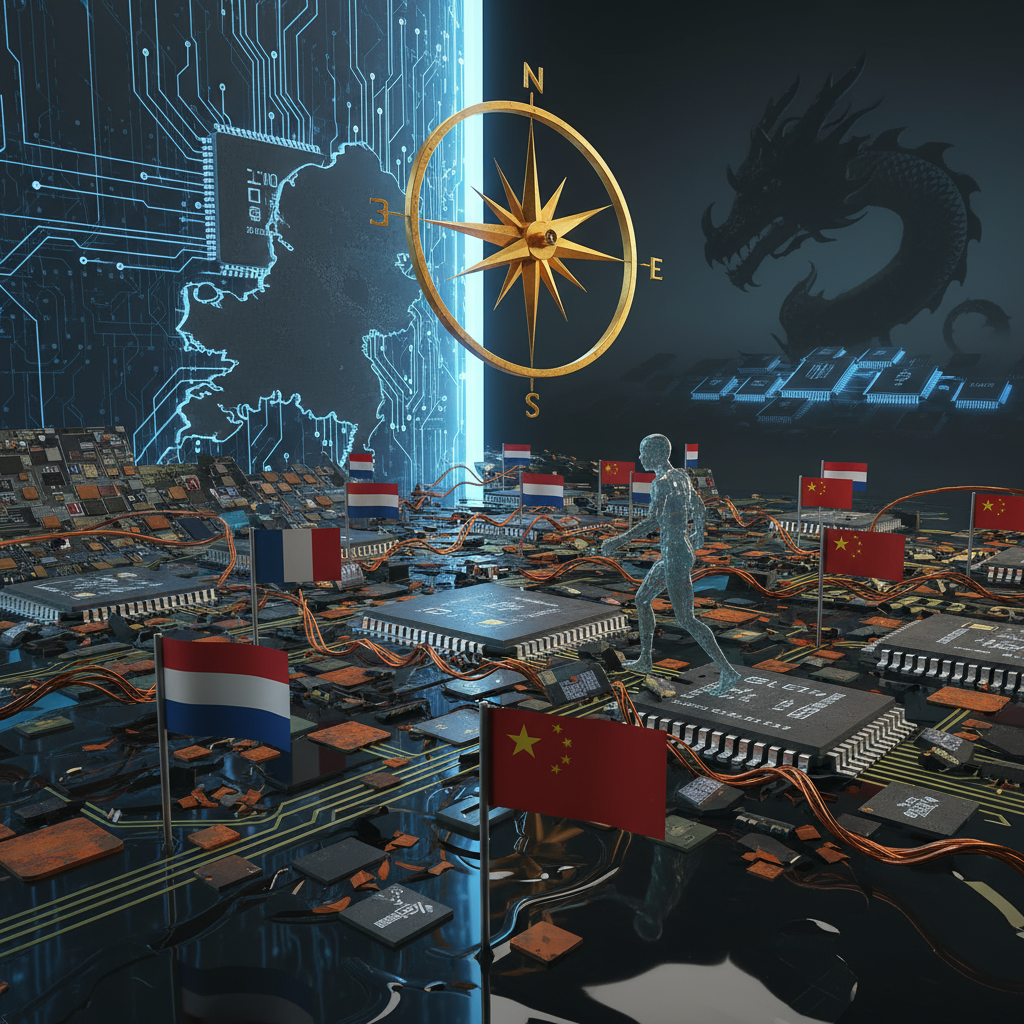In a world increasingly dependent on technology, the seemingly abstract concept of “chip security” has rapidly transitioned from a niche concern to a geopolitical hotspot. The tiny semiconductors that power everything from our smartphones to advanced military systems are now at the heart of a global power struggle. Recently, the Netherlands, a key player in the intricate semiconductor supply chain, sent a clear message by cracking down on a China-owned chip firm due to perceived security risks. This move isn’t just about one company; it’s a powerful illustration of the escalating tensions and the critical importance of safeguarding technological infrastructure.
The Dutch Dilemma: Balancing Trade and Trust

The Netherlands has long occupied a unique and influential position in the semiconductor industry, largely thanks to ASML, the world’s sole producer of advanced extreme ultraviolet (EUV) lithography machines. These machines are indispensable for manufacturing the most cutting-edge chips, effectively granting the Dutch a chokehold on advanced microchip production. This economic leverage, however, comes with significant geopolitical responsibility, especially as international relations become increasingly strained.
The recent crackdown highlights the delicate balancing act faced by nations like the Netherlands. On one hand, China represents a massive market and a significant trading partner. On the other hand, concerns rooted in national security, data integrity, and the potential for technological espionage are paramount. This isn’t just about preventing direct sabotage; it’s also about intellectual property theft, potential supply chain vulnerabilities, and the broader implications of having critical infrastructure controlled by entities linked to rival powers.
The Dutch government’s decision signals a shift towards prioritizing security concerns even when it impacts economic ties. It demonstrates an increasing alignment with Western allies, particularly the United States, in seeking to limit China’s access to advanced semiconductor technology. This proactive stance reflects a recognition that in the digital age, economic strength is intrinsically linked to technological sovereignty and resilience.
Navigating the Quagmire of Geopolitical Chips

This situation is far from an isolated incident. The “chip war” – a term increasingly used to describe the strategic competition over semiconductor technology – has been unfolding on multiple fronts. The U.S., for instance, has implemented stringent export controls on advanced chips and chip-making equipment to China, citing national security concerns. These moves aim to slow China’s technological progress, particularly in areas with military applications.
Other European nations and allies are also carefully re-evaluating their relationships with Chinese tech firms. We’ve seen similar debates and restrictions regarding telecommunications giant Huawei and its involvement in 5G networks across various countries. The underlying fear is consistent: that foreign ownership or control of critical technological infrastructure could present backdoors for surveillance, disrupt essential services, or be weaponized in times of conflict. The move by the Netherlands can therefore be seen as part of a wider, coordinated effort to de-risk essential technology supply chains and prevent potential over-reliance on geopolitical rivals.
This evolving landscape has forced companies and governments alike to consider resilience and redundancy. Diversifying manufacturing locations, fostering domestic chip production, and establishing trusted supply chains are becoming strategic imperatives. The Netherlands’ actions contribute to this broader trend, encouraging a more cautious and security-conscious approach to international tech partnerships.
The Ripple Effect: What This Means for the Tech World
The implications of the Netherlands’ decision are multifaceted and will likely reverberate throughout the global tech industry. Firstly, it sends a strong signal to other nations and companies that national security considerations are increasingly trumping purely economic ones. Companies with significant ties to governments viewed as potential adversaries may face increased scrutiny, regulatory hurdles, or even divestment orders in Western markets.
Secondly, it could accelerate the decoupling of tech ecosystems. As countries become more selective about their technological partners, we might see a more fragmented global tech landscape, with different regions operating on distinct, and potentially incompatible, technological standards and supply chains. This could lead to increased costs, reduced innovation through limited collaboration, and a more complex operating environment for multinational tech firms.
Lastly, it underscores the persistent vulnerability of global supply chains. The concentration of advanced manufacturing capabilities, particularly in the semiconductor sector, makes the entire world susceptible to geopolitical shocks. This crackdown serves as a stark reminder that even seemingly small actions by individual nations can have significant upstream and downstream impacts, influencing everything from consumer electronics prices to the pace of technological advancement.
Conclusion: A New Era of Tech Geopolitics
The Netherlands’ decision to crack down on a China-owned chip firm over security risks is more than just a headline; it’s a profound indicator of a new era in tech geopolitics. Nations are no longer viewing technology solely through an economic lens but are increasingly integrating national security, data sovereignty, and strategic competition into their policy frameworks. This will undoubtedly lead to a more complex, scrutinized, and potentially fragmented global tech environment. For businesses, governments, and consumers alike, understanding these shifts is paramount as we navigate a future where the battle for technological supremacy will define global power dynamics for decades to come.

